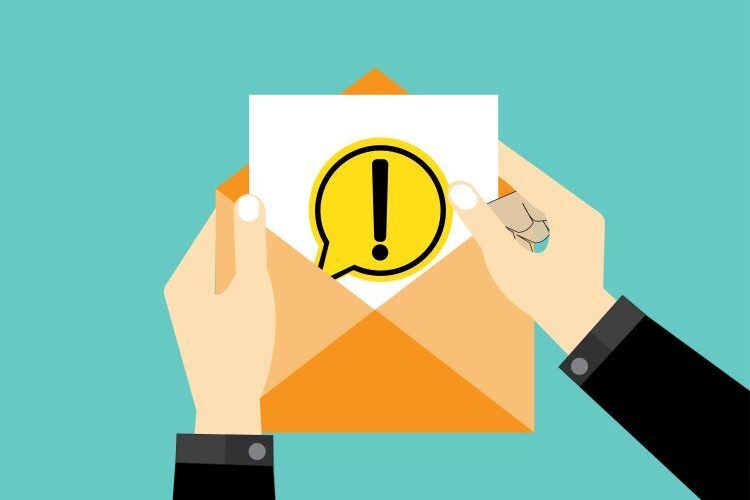Responding to Letters from FDA
October 29, 2024
There are several forms of communications FDA may send to signify an issue. FDA may send a company a notice of a violation in the form of a Warning Letter, an Untitled Letter, or an “It Has Come to Our Attention” Letter. Any communication from FDA must be treated seriously.
Violations can lead to escalating government investigations, product recalls, and even legal actions such as seizures or injunctions. Letters from FDA can damage your company's reputation and finances, making swift corrective action crucial. Ignoring them is like ignoring a flashing red light – it's better to address the issue before it becomes a bigger problem.
But what do specific notifications mean and what should you do if you receive one?
It Has Come to Our Attention Letters
One type of letter, an “It Has Come to Our Attention Letter” (“IHCTOA”), is commonly used by FDA to put a company on notice that they may be promoting a product in a way that violates the Food, Drug, and Cosmetic Act (“FDCA”). The purpose of this type of letter is usually to gather and provide information rather than to communicate that FDA is considering an enforcement action.
IHCTOA letters are not enforcement actions, but they should be taken seriously. Rectifying the issues addressed in the letter and responding promptly to any requests shows FDA you take compliance seriously. We recommend that you engage with FDA on these letters. If you disagree with FDA’s contention, it is important to develop an avenue to provide your argument. With proper follow-up, you can avoid having IHCTOA letters escalate into a more serious action from the FDA.
Untitled and Warning Letters
FDA sends Untitled Letters to give companies an opportunity to become compliant and avoid further regulatory action. These letters inform their recipients of violations of the FDCA and give an opportunity to resolve the issue. Untitled Letters are FDA’s way of getting a company’s attention regarding an issue “that may not meet the threshold of regulatory significance for a Warning letter.” Untitled Letters are occasionally made public, especially to drug makers.
Untitled Letters from the FDA typically request a response within 30 days, and we generally recommend that you respond accordingly within that timeframe. While Untitled letters rarely threaten enforcement action, a thorough and timely response will reduce the chance of additional FDA scrutiny such as a Warning Letter or Regulatory Meeting.
A Warning Letter is the FDA’s principal way of notifying companies of violations of the FDCA. Failure to correct a violation cited in a Warning Letter could result in enforcement action from the Agency. Typically, the recipient will have 15 days to take corrective action and respond to a Warning Letter. Warning Letters are routinely made public by the Agency via posting on their website. Occasionally, FDA makes an error in a Warning Letter, so it is important to make sure that a Warning Letter, or any FDA letter for that matter, is factually correct. If an error is made by the FDA, you might receive an apology, but a public correction or notification is unlikely.
If you receive a letter from FDA:
1. Review the letter thoroughly to ensure that you understand what FDA is communicating. If the letter cites violations, make sure you understand the scope and depth of the violations so you can fully address the issues.
2. Decide what actions you will take to resolve the issues communicated in the letter. Carefully develop a plan for how to resolve the issues in a timely and efficient manner. In some cases, FDA will request that you cease all violations and provide a detailed plan for how and when you will become compliant. You are also responsible for investigating and determining the cause(s) of any violations to prevent their recurrence. Failure to correct violations could result in enforcement action from the Agency.
3. Respond to FDA’s letter within the required timeframe. Describe the specific steps taken to address the violations along with actions being taken to prevent any recurrences. Include all documentation requested by the Agency. If your work is still in-progress, report on the status of your corrective actions, a timeline for completion, and a schedule for “effectiveness checks.” Your response should give FDA confidence that you understand the violations and take remediation seriously.
If you believe that your products do not violate the FDCA, communicate your reasoning and supporting information to FDA for their consideration. You may also request a meeting or teleconference with the Agency. While engaging with the Agency, it is important to conduct business in a professional manner. As the adage goes, “you can catch more flies with honey than with vinegar.”
Contact Us
Gardner Law has extensive experience in advising companies on how to avoid and correct violations of the FDCA. We are also experts in handling communications with the FDA. If you have any questions or need assistance in understanding or responding to an IHCTOA, Untitled, or Warning Letter, please reach out. We would be happy to assist.